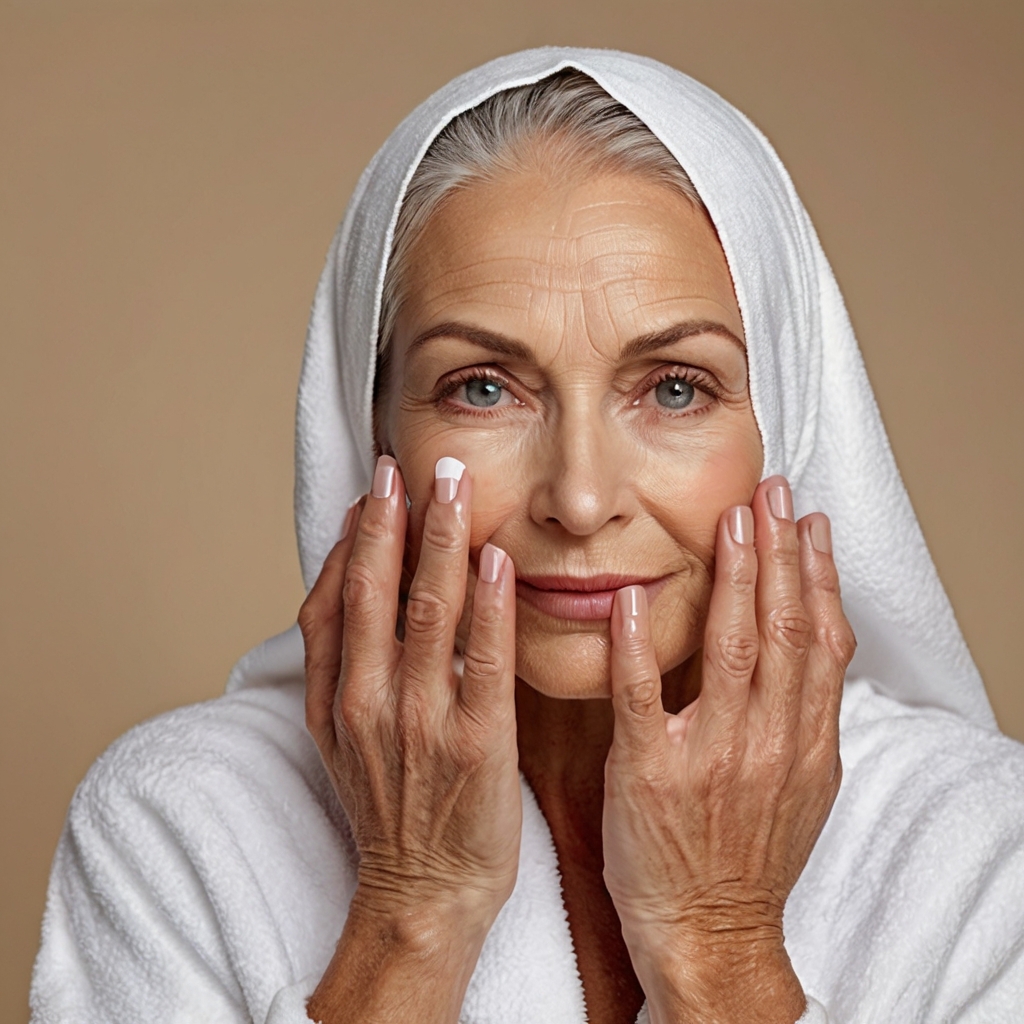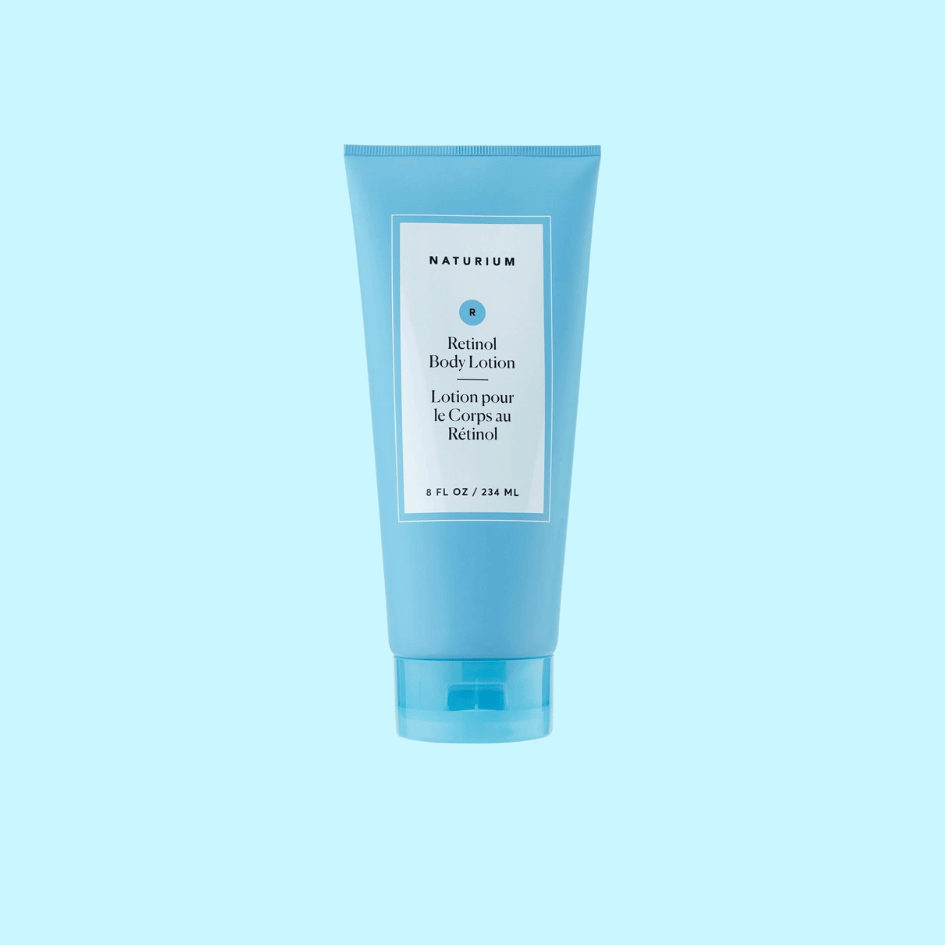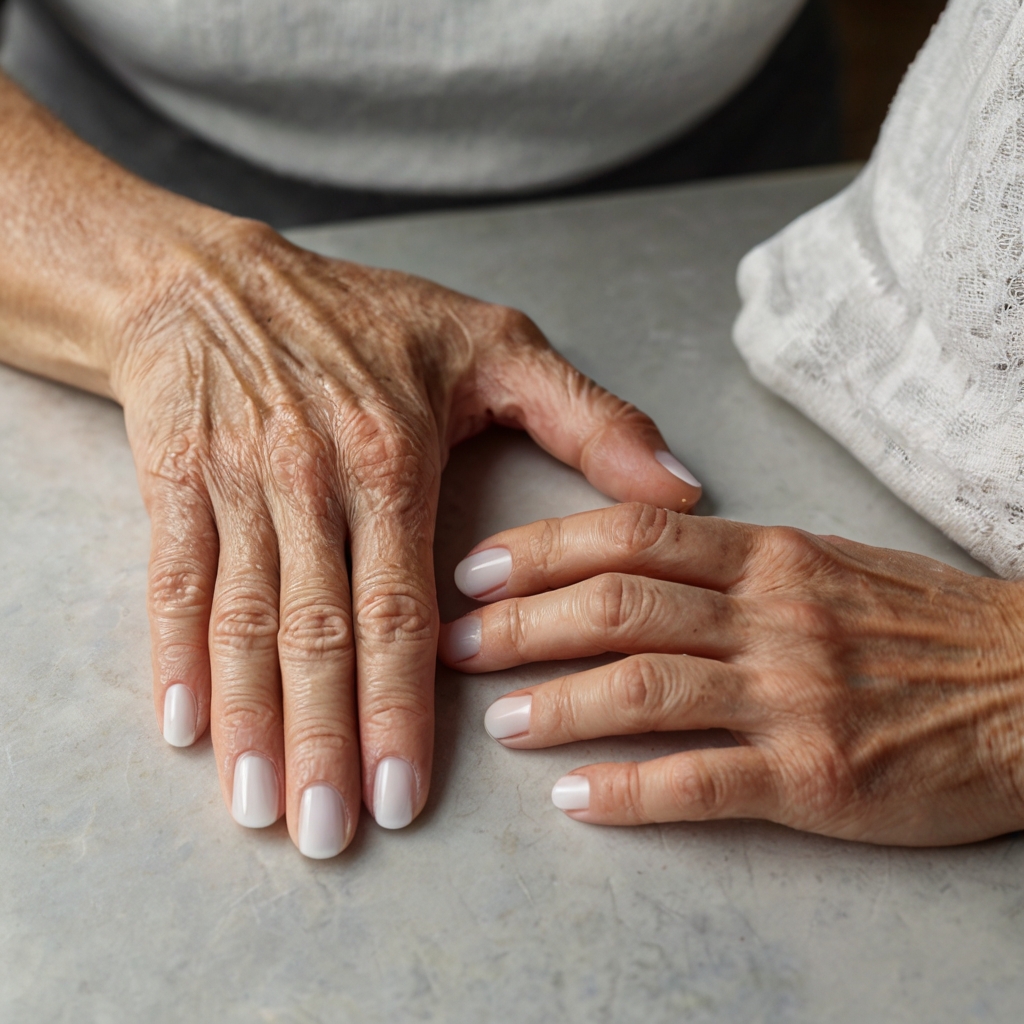Let’s talk about something that keeps me up at night: my aging hands. I swear, I could spend a fortune on facial serums and treatments, but if my hands look like they belong to someone decades older, what’s the point?
I first became obsessed with hand aging when I noticed my mother’s hands a few years ago. Despite her youthful face, her hands told a different story – with prominent veins, age spots, and that telltale crepey skin. That was my wake-up call. I immediately began researching anti-aging hand creams like my life depended on it.
What I’ve discovered over years of testing countless products is that the right hand cream can make a dramatic difference without breaking the bank. That’s huge compared to expensive treatments like hyaluronic acid fillers that can cost up to $700 per syringe! No thank you.

Top-Rated Anti-Aging Hand Creams You Can Order Now
As an Amazon Associate, I earn from qualifying purchases. This helps support the site at no extra cost to you.
After years of being a human guinea pig and trying everything from luxury splurges to drugstore finds, these are the hand creams that have earned a permanent place in my routine:
1. NIVEA Q10 Plus Age Defying Hand Cream – 100ml

Best for: Budget-friendly wrinkle prevention
Why I’m obsessed: This has become my everyday go-to cream. It combines Q10 with UV filters to tackle wrinkles and age spots while providing serious hydration. The best part? It absorbs so quickly that I can get back to texting or typing within minutes – no greasy residue! I keep tubes everywhere – purse, nightstand, desk drawer, you name it.
Price: Usually under £5 — such a bargain for daily use.
2. Eucerin Advanced Repair Hand Cream

Best for: Very dry, sensitive skin
Why I’m obsessed: As someone whose hands crack and bleed during winter (attractive, I know), this cream has been a lifesaver. It’s fragrance-free (major plus for my sensitive skin) and packed with ceramides that heal even the most damaged hands. I slather this on before bed during harsh weather months, and I wake up with dramatically improved skin.
✅ Check Eucerin Advanced Repair Latest Price
3. Retinol Anti-Aging Hand Cream by Skincare LdeL

Best for: Retinol fans on a budget
Why I’m obsessed: This was my gateway to retinol in hand care, and I still return to it. The combo of retinol with vitamins A & E has visibly reduced signs of aging while also moisturizing my nails and cuticles (bonus!). After consistent evening use for about three months, I noticed a significant reduction in the sun spots I’ve had since my 20s. Just remember to wear sunscreen during the day!
✅ See Retinol Anti Aging Reviews On Amazon
4. No7 Pure Retinol Hand Cream

Best for: Reducing visible aging signs with clinical results
Why I’m obsessed: This has been my nighttime hand treatment game-changer! After dealing with age spots that seemed to multiply overnight, I took a chance on this retinol formula and haven’t looked back. What sets it apart is how well it tackles fine lines AND age spots simultaneously without irritating my sensitive skin. The cream absorbs quickly without any greasy residue (huge plus!), and I’ve noticed a significant improvement in my skin texture after just a few weeks. My hands actually look noticeably younger!
5. Naturium Skin-Renewing Retinol Body Lotion

Best for: Luxury anti-aging for both hands and body
Why I’m obsessed: While this is technically marketed as a body lotion, I’ve been using it as my premium hand treatment and the results are incredible! The encapsulated retinol is gentler than other formulas I’ve tried, meaning no irritation even with regular use. What I love most is how it tackles that crepey skin texture on the backs of my hands – they look plumper and smoother almost immediately. The formula feels rich and indulgent but absorbs completely, leaving my skin silky soft without any stickiness. It’s pricier than some options, but a little goes a long way.
⚠️ My Secret Hack: I keep at least five tubes of hand cream strategically placed around my life: bedside table, handbag, car, desk, and kitchen sink. This ensures I never have an excuse not to apply after washing my hands or when I notice them looking dry.
As an Amazon Associate, I earn from qualifying purchases. This helps support the site at no extra cost to you.
Table of Contents
- Understanding Hand Aging: What’s Actually Happening
- Key Anti-Aging Ingredients That Actually Work
- Clinical Evidence (Because I’m a Nerd About This Stuff)
- Application Techniques I Swear By
- Your Burning Questions Answered
Understanding Hand Aging: What’s Actually Happening
I’ve gone down many research rabbit holes trying to understand why my hands started looking older than my face. Here’s what I’ve learned about what’s really happening under the skin.
The science bit (I’ll keep it brief)
Hand aging involves multiple tissue-level changes happening simultaneously. The skin’s natural collagen and elastin network breaks down (thanks a lot, aging process), which reduces firmness and elasticity. Even worse, the fat pads beneath the skin gradually disappear, creating that skeletal, aged look we all dread.
Signs your hands are betraying your age
Here’s what I started noticing about my own hands that sent me into panic mode:
- Veins and tendons becoming more prominent (not the good kind of definition we want)
- Fine lines and wrinkles appearing out of nowhere
- Dark spots and hyperpigmentation (thanks, sun damage from my careless 20s)
- Constantly dry, sometimes scaly texture
- Decreased elasticity when I pinch my skin
I even developed brittle nails, which apparently happens to about 20% of adults, especially women over 60. I’m not there yet, but my hands were certainly heading in that direction!
Why hands age faster than your face
This part is so unfair: hands age faster because they have thinner skin than your face and fewer sebaceous glands, meaning less natural oil production. Plus, think about it – our hands are constantly exposed to sun, chemicals, and frequent washing that strips away protective oils.
No wonder my hands were giving away my age while my well-protected face was still holding up! It’s like they’re determined to embarrass me.
Key Anti-Aging Ingredients That Actually Work
After trying countless products, I’ve become something of an ingredient detective. Here are the powerhouse ingredients I look for in any hand cream worth its salt:
Retinol and peptides: The wrinkle fighters
Retinol is the MVP in my anti-aging arsenal. At 0.25% concentration (the sweet spot I’ve found), it promotes cell turnover and boosts collagen production. This vitamin A derivative has visibly smoothed the fine lines across my knuckles and faded those annoying brown spots.
Fair warning though: I learned the hard way to start with retinol just once or twice weekly before gradually increasing. My hands got irritated and flaky when I went all-in too quickly!
Peptides complement retinol beautifully by signaling the skin to produce more collagen. When I find a product containing both? Immediate add to cart.
Hyaluronic acid and ceramides: The hydration heroes
Hyaluronic acid is basically a tall drink of water for parched hands. As we age, our natural hyaluronic acid diminishes (rude), but applying it topically helps restore moisture levels and improve skin elasticity.
I’ve found ceramides work like a dream with hyaluronic acid by strengthening the skin’s natural barrier. The combination creates a moisture-trapping system that keeps my hands hydrated for hours. Hyaluronic acid pulls water in like a magnet, while ceramides seal the deal by locking that moisture in place.
Antioxidants and brightening agents: The glow-getters
Antioxidants like vitamins C, E, and B3 (niacinamide) have become non-negotiables in my hand care routine. They provide protection against environmental damage and actually penetrate the skin thanks to their small molecular weight.
Niacinamide has been particularly effective at tackling my uneven skin tone and minimizing dark spots. I’ve also had amazing results with products containing Daisy Flower Extract for reducing age spots, plus Mangosteen and Quince Extract that plump fine lines like magic.
My holy grail hand creams usually contain some combination of:
- Retinol (0.25%) for cell renewal and collagen boost
- Peptides for that extra firmness
- Ceramides and hyaluronic acid for deep hydration
- Niacinamide to even out my skin tone
- Antioxidants to protect against future damage
Clinical Evidence Behind Anti-Aging Hand Creams
I don’t just want pretty packaging – I want ingredients that are scientifically proven to work. Here’s the research that has guided my product choices:
Research-backed ingredients
Multiple studies confirm what I’ve experienced firsthand: topical vitamin C significantly improves brown spots and skin texture after about 12 weeks of use. Human platelet extract (HPE) has been shown to reduce brown spots by 27% in clinical trials – I’m always looking for products with these ingredients.
I’m also a big fan of ceramide-based formulations after learning they provide superior moisturization compared to standard products. The science backs up what my hands have been telling me!
Does this stuff actually work?
Here’s what convinces me to keep investing in quality hand creams:
- In a 120-day study, a formula with retinol, alpha-arbutin, and kojic acid showed significant improvements in texture, wrinkles, and pigmentation
- Urea-based hand creams boosted skin moisturization by 51% in clinical testing
- Glycerin-rich formulas increased skin hydration by over 40%
I’ve personally experienced these benefits – especially with consistent use of products that combine multiple active ingredients rather than relying on a single star ingredient.

Application Techniques for Maximum Benefits
Through much trial and error (and some very greasy keyboards), I’ve discovered that how you apply hand cream is just as important as what you apply. Here are my tried-and-true methods:
Optimal application timing
Timing makes a huge difference! I always apply hand cream immediately after washing while my skin is still slightly damp. This locks in moisture before it can evaporate and leave my hands drier than before.
Night applications have been game-changing for me. Our skin repairs itself during sleep, so applying thicker, richer formulas before bed gives them hours to work their magic undisturbed. I exclusively use my retinol-based products in the evening since sunlight breaks down the active ingredients.
My intensive weekly treatment involves applying a thick layer of cream and wearing cotton gloves to bed. Yes, my husband laughs at me, but who’s laughing when my hands look five years younger?
How much to use and how often
After much experimentation, I’ve found that a pea-sized amount is perfect for each application. Here’s my application routine:
- Wash hands thoroughly and pat until slightly damp (not completely dry)
- Warm the cream between my palms for better absorption
- Focus on the backs of my hands with circular motions (that’s where aging shows most)
- Pay extra attention to knuckles and joints with gentle massage
- Don’t forget fingers and cuticles
- Allow it to fully absorb before touching anything important (I learned this lesson after greasing up my phone screen too many times)
I apply hand cream at least three times daily: morning, midday, and before bed. I also reapply after every hand washing when possible, especially in winter.
Combining with other treatments
The real magic happens when you layer treatments! I pair my hand creams with daily broad-spectrum sunscreen (absolute must for preventing more damage).
Once a week, I use a gentle exfoliating treatment before applying a thick layer of retinol cream for an overnight mask. The exfoliation helps remove dead skin cells, allowing the active ingredients to penetrate better.
I’ve also found that wearing protective gloves while doing housework, gardening, or driving in bright sunlight makes a massive difference in maintaining results. It’s all about prevention plus treatment!
FAQs about the best anti aging hand cream:
What is the best anti-aging treatment for hands?
The most effective anti-aging hand treatments combine retinol-based hand creams with daily sunscreen and occasional chemical exfoliation. For more severe concerns, professional treatments like laser therapy and chemical peels provide deeper rejuvenation.
How do I stop my hands from aging?
Preventing hand aging requires consistent application of hand cream after washing, daily use of broad-spectrum SPF, and protection from harsh chemicals with gloves. A diet rich in collagen-supporting nutrients and antioxidants further helps maintain skin elasticity and prevent premature aging.
Does retinol hand cream really work?
Yes, retinol hand creams work by stimulating collagen production, fading dark spots, and reducing fine lines with regular use. Results typically become noticeable after 8-10 weeks of consistent application, with continued improvement over time.
Does hand cream help with aging?
Hand creams with active anti-aging ingredients like retinol, peptides, and antioxidants effectively maintain skin moisture and elasticity, reducing visible signs of aging. Regular application strengthens the skin barrier and improves texture, making hands look smoother and younger.
How can I make my hands look younger fast?
For immediate results, use hydrating hand creams with light-reflecting particles combined with gentle exfoliation to remove dead skin cells. Professional paraffin treatments and well-groomed nails through manicures also provide quick visual improvements to aging hands.
Is Vaseline good for aging hands?
Vaseline seals in moisture but lacks active ingredients necessary for anti-aging benefits. For best results, use it as a top layer over treatment creams containing retinol or peptides rather than as a standalone anti-aging solution.
How can I increase collagen in my hands?
Collagen production in hands can be stimulated through topical retinol application, regular hand massage to improve circulation, and proper nutrition rich in vitamin C. Treatments like gentle microneedling followed by peptide-rich serums can also boost collagen synthesis.
Why are my hands looking so old?
Hands appear aged due to sun exposure, frequent washing, environmental damage, and loss of fat padding beneath the skin. The skin on hands is thinner with fewer oil glands than facial skin, making it more susceptible to showing signs of aging when not properly protected and moisturized.
What deficiency causes wrinkles on hands?
Vitamin C and essential fatty acid deficiencies commonly contribute to hand wrinkles by compromising collagen production and skin barrier function. Inadequate hydration and lack of minerals like zinc and selenium can also accelerate the aging process in hand skin.
